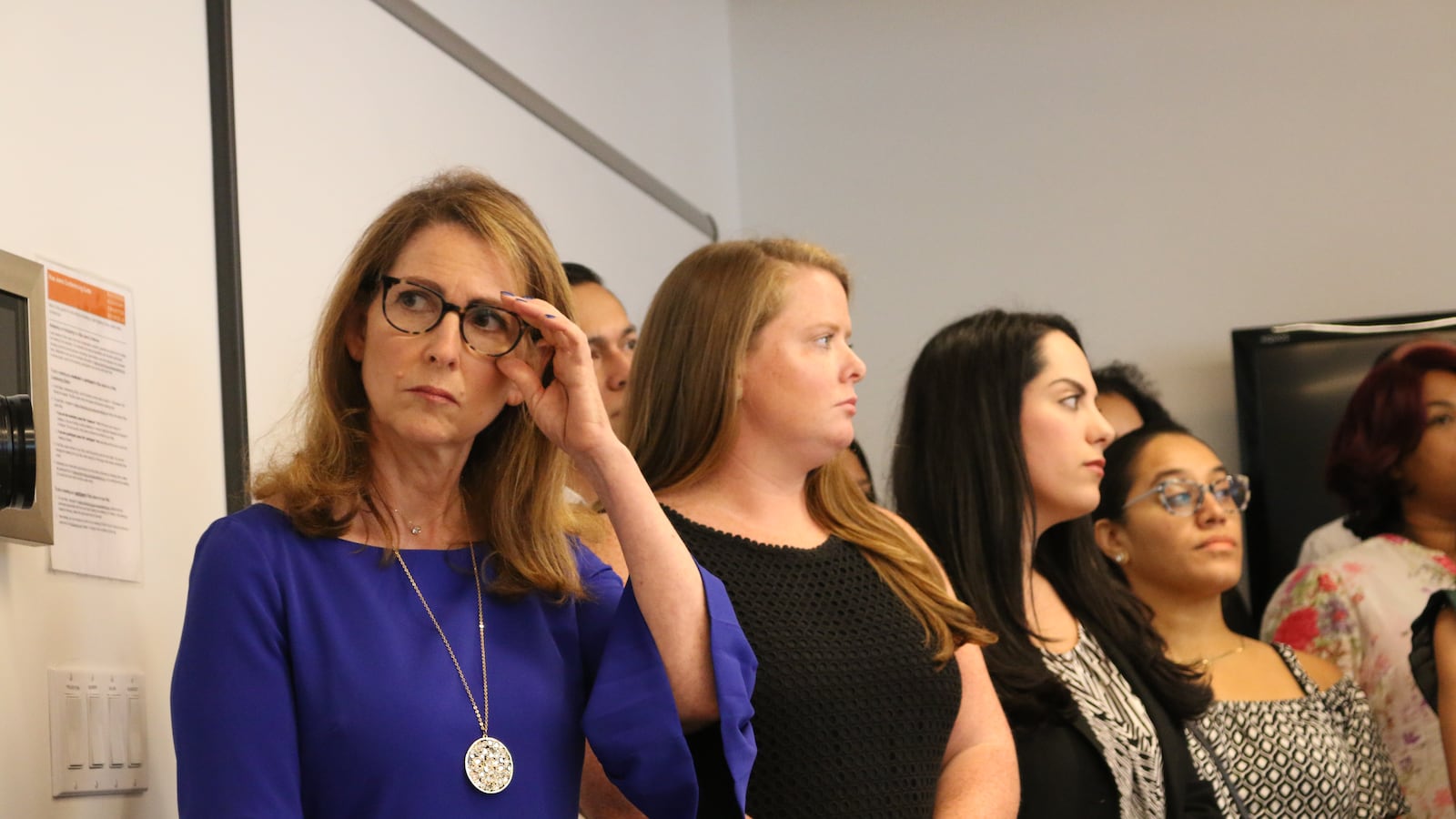Writing about Eva Moskowitz, charter school impresario, is scary as hell. It’s impossible not to imagine what she, or her legions of critics, will say. Today, I am probably going to get a beating from all sides.
That’s because we published a story in partnership with the Atlantic magazine today in which I simultaneously praise and condemn Moskowitz and what she represents for our country, more sharply and honestly than I ever have before.
My key point: “Moskowitz has created the most impressive education system I’ve ever seen.” And I’m both optimistic and also really afraid for what that means for the country.
What’s impressive about Success schools, I write, goes beyond their high test scores, emerging diversity, and speed-of-light expansion. What’s impressive is the new model of public education the schools represent — one that’s taking off all around the country, especially in cities Chalkbeat covers. I introduce this model by explaining why I think school districts have such a hard time (maybe an impossible time) getting better:
The reason isn’t terrible union contracts or awful management decisions. The fault, I came to see, lies in the (often competing) edicts issued by municipal, state, and federal authorities, which add up to chaos for the teachers who actually have to implement them. It’s not uncommon for a teacher to start the year focused on one goal—say, improving students’ writing—only to be told mid-year that writing is no longer a priority, as happened just the other day at a Boston school I know of. We could hardly have designed a worse system for supporting good teaching had we tried. Of all the reforms that have set out to free schools from this trap, to date I’ve seen only one that works: the implementation of charter-school networks. Large enough to provide shared resources for teachers, yet insulated from bureaucratic and political crosscurrents by their independent status, these networks are creating the closest thing our country has ever seen to a rational, high-functioning school system.
But what’s scary about a charter-school-takeover model, I write, is that it succeeds by squashing democracy.
They have strengthened public education by extracting it from democracy as we know it—and we shouldn’t be surprised, because democracy as we know it is the problem … As Moskowitz built Success, she enforced what she calls a “dual mission”: first, to build schools “to which any parent would want to send their children,” and second, to enlist staff, students, and families in the fight for laws and policies that let Success build such schools. Her contention is that one mission reinforces the other. But does she wishfully overlook deeper tensions? … According to Moskowitz, the choices she’s made have been pedagogically driven. Opting out of backfilling ensures that her students aren’t distracted by peers who lag behind; test prep arms her students for the meritocratic ordeal ahead. At the same time, these policies clearly advance Success’s reputation and help cement its political power. … Who gets to make these trade-offs? In large part, the decisions belong to Moskowitz—or, more accurately, to the Success board. Charter boards, designed to sidestep the unwieldy directives of democratic school governance and focus ruthlessly on leading good schools, are the main reason charter networks operate so well—and also the main reason I worry as the networks grow.
I can’t wait to hear what our readers think. Actually, I’m so nervous about what you’ll say that I’d happily wait a lifetime, but go ahead and let me have it. Comment below, on Facebook, or via Twitter — I promise I’ll read each and every note.
After you read this, please check out our story from Matt Barnum — first in a three-part series — on the portfolio model that has allowed Eva Moskowitz to thrive and the philanthropists and activists who are pushing for it.


